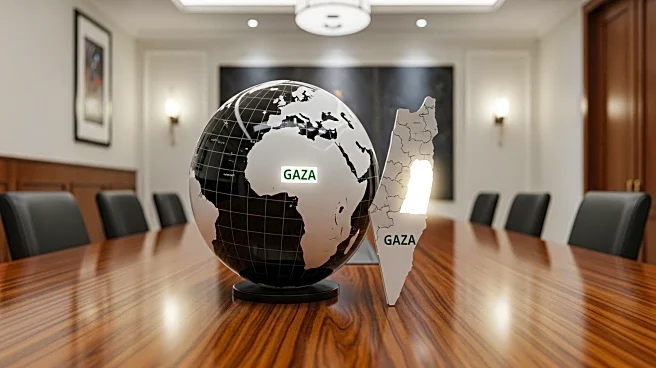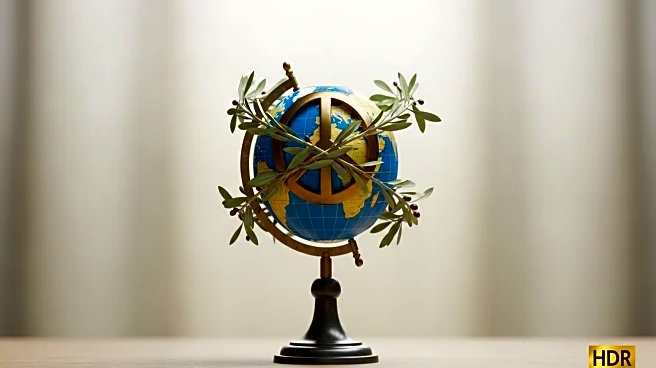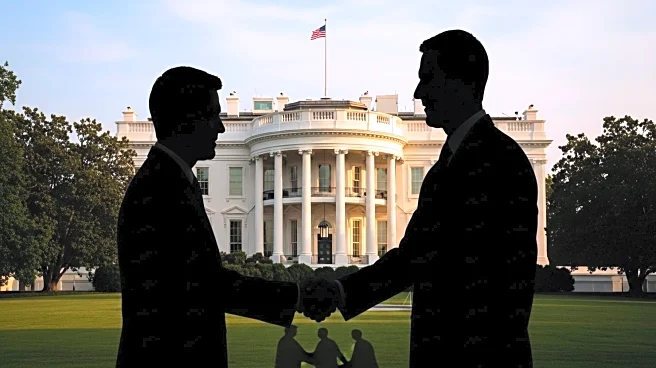What's Happening?
President Trump and Prime Minister Benjamin Netanyahu recently engaged in a discussion regarding a peace plan for Gaza. The conversation reportedly included a moment where President Trump expressed frustration with Netanyahu's negative outlook on the plan's prospects. According to an informed U.S. official, Netanyahu remarked that the plan was not a cause for celebration and doubted its significance. This exchange occurred during a joint press conference held at the White House, highlighting ongoing diplomatic efforts to address the complex situation in Gaza. The dialogue reflects the challenges faced by leaders in navigating peace initiatives in a region marked by longstanding conflict.
Why It's Important?
The discussion between President Trump and Prime Minister Netanyahu underscores the complexities of Middle Eastern diplomacy, particularly concerning the Israeli-Palestinian conflict. The peace plan for Gaza is a critical component of broader efforts to stabilize the region, which has been plagued by violence and political instability. The differing perspectives of the U.S. and Israeli leaders highlight the challenges in achieving consensus on peace strategies. Successful implementation of such plans could lead to significant geopolitical shifts, impacting regional security and international relations. The outcome of these discussions may influence future U.S. foreign policy and its role in Middle Eastern affairs.
What's Next?
The next steps in the peace plan for Gaza remain uncertain, as the dialogue between President Trump and Prime Minister Netanyahu suggests differing views on its viability. Continued diplomatic engagement and negotiations are likely necessary to address the concerns raised by both leaders. The international community, including key stakeholders in the Middle East, will be closely monitoring developments. Potential reactions from Palestinian groups and other regional actors could further complicate the situation. The U.S. may need to reassess its approach to Middle Eastern diplomacy, considering the feedback from its allies and the evolving geopolitical landscape.
Beyond the Headlines
The exchange between President Trump and Prime Minister Netanyahu highlights deeper issues in international diplomacy, such as the balance between optimism and realism in peace negotiations. The cultural and historical context of the Israeli-Palestinian conflict adds layers of complexity to diplomatic efforts. Ethical considerations, including the humanitarian impact of peace plans, are crucial in shaping policy decisions. Long-term shifts in U.S.-Israel relations could emerge from these discussions, influencing future collaborations and strategic alliances. The dialogue also reflects broader themes in global politics, such as the role of leadership in conflict resolution and the pursuit of sustainable peace.










